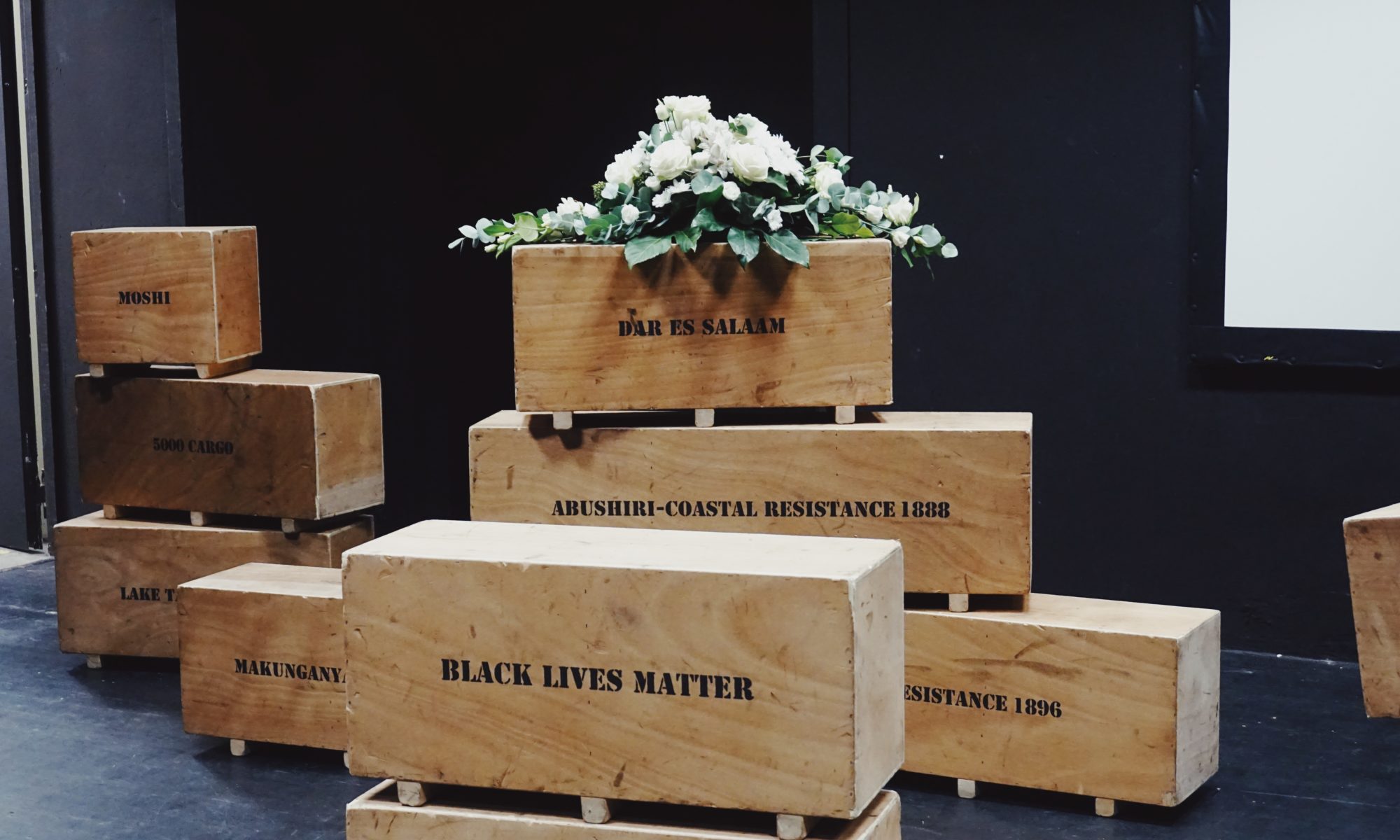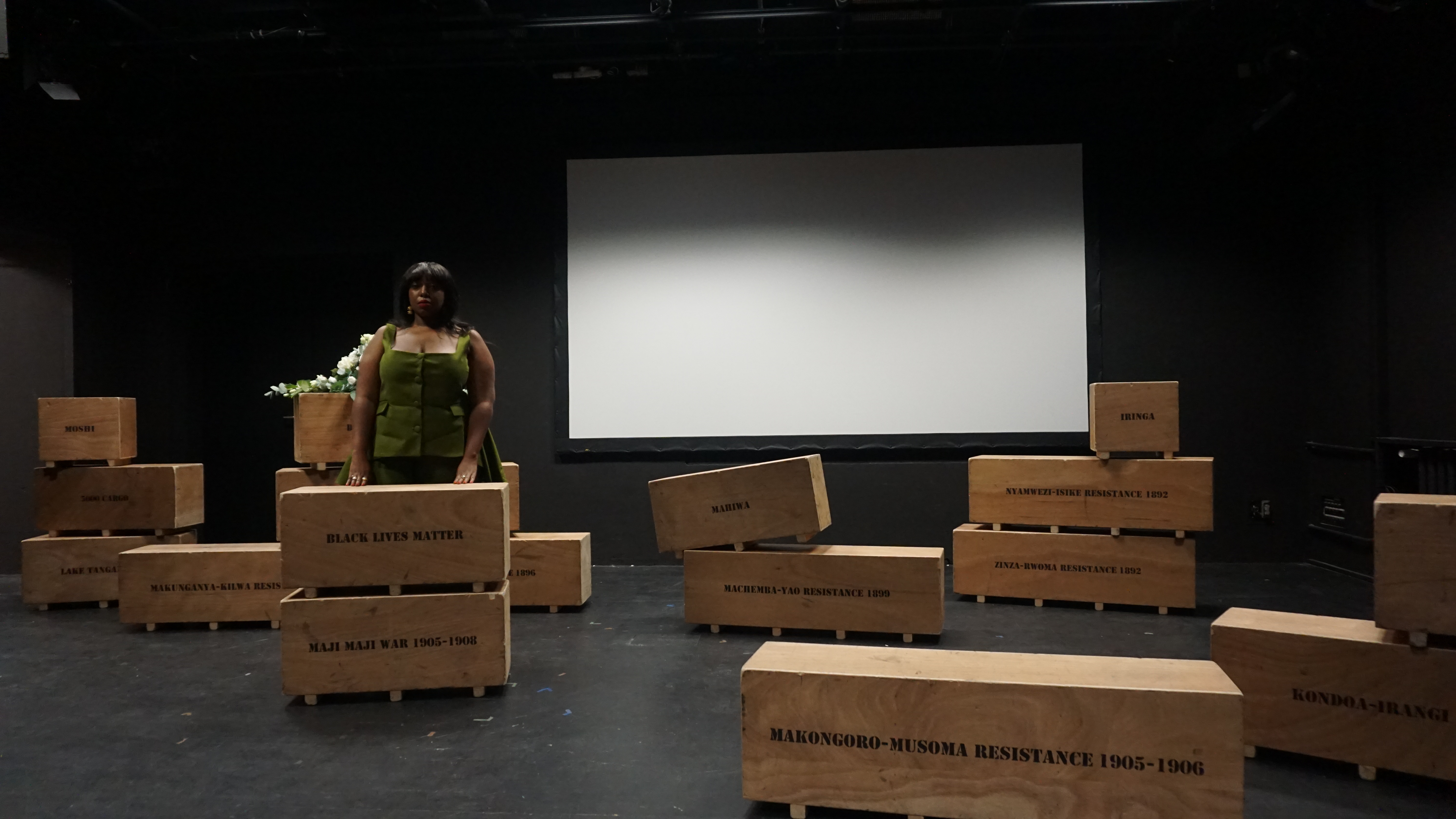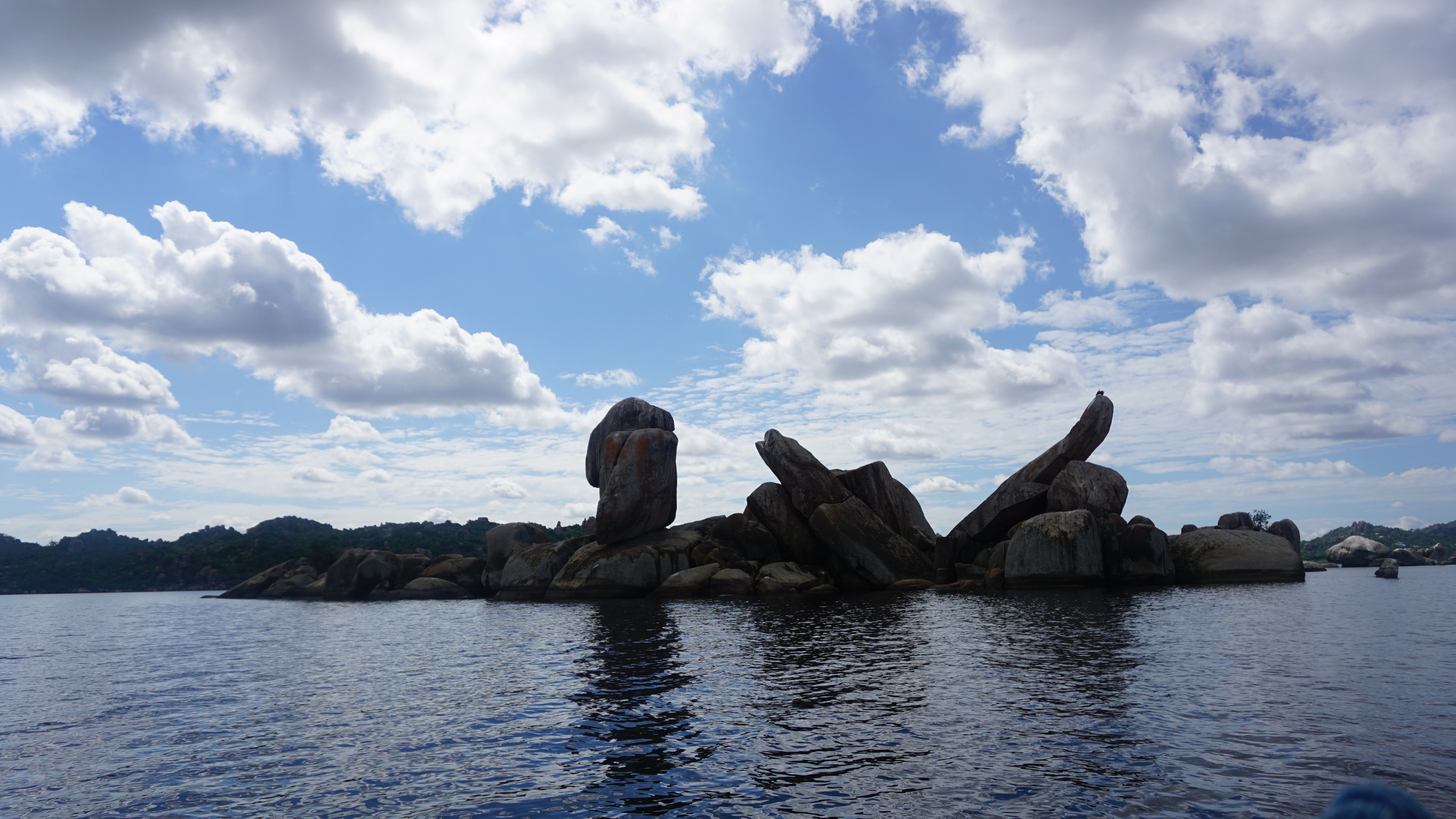War or Peace Crossroads of History 1918/2018, Gorki Theater
Performance Lectures WHAT HAPPENED HERE
October 16-18 2018
Berlin, Germany
“A century after the end of the First World War, the story of this war is still told mainly from a European point of view: the global extent of the conflict is concealed, the experiences of its non-European actors remain hidden, as if it had been four years of carnage, only the peace of Europe have disturbed. The multimedia presentation What Happened Here by the artist KATHLEEN BOMANI examines the history and the lasting effects of German colonialism and the First World War in Africa. With the help of archival images and current film recordings as well as hundred-year-old work songs and other media, her lecture vividly illustrates four years of research (2014-2018) questioning the conventional narrative of the First World War and the unknown bloodshed of German colonialism brings forth. The East African campaign, which ended in 1918, was by far one of the longest and deadliest series of battles that struck the continent: Germany, Britain, Portugal and Belgium fought against each other, mostly with the help of enslaved African labor and forcefully recruited soldiers. Kathleen Bomani digs up this heritage, not to commemorate its end.”
Crossing Oceans, SPIELARTS Festival,
Performance Lecture
Munich, Germany
November 3-5 2017
WHAT HAPPENED HERE A multi media performance lecture tracing World War I In Tanzania and German colonialism during this era using archival footage, contemporary images of sites of German colonial trauma, fictional film and Sukuma labor songs.
Nathi.Aha.Sasa/ Us.Here.Now Curated by Zohra Opoku
Performeum, Wiener Festwochen, Installation
Vienna, Austria
June 8-12, 2017
WHAT HAPPENED HERE is a mixed-media installation that examines the history and effects of German colonialism and WWI in northern Tanzania as documented by the Sukuma people, through three-channel video, sound art, and translated text. Bomani juxtaposes Sukuma labour songs, passed down through oral traditions for a hundred years, with moving images of the waters of Lake Victoria and distinctive rock formations from the Mwanza region of northern Tanzania. This specific geography is referenced as metaphor in the labour songs and remains a symbol for the longevity of colonial trauma through the ripples of moving time. WHAT HAPPENED HERE is both a question and a statement—of a war that happened, the silenced histories around it, the unknown extent to which it ravaged the continent, and the questions we don’t even know to ask about the things we weren’t told happened. With this project, Bomani is engaging with Sukuma archives to extract social history and to engage them with our contemporary moving conscious.
Further Reading:
One of the Sukuma labour songs mentions two boulders—the English and the Germans—on an open field fighting for cattle, a layered reference specific to the geography of northern Tanzania and one that identifies colonizers as intrinsically destructive and violent forces. These songs are a source of social history that push back against revisionist claims as to why WWI was fought in the first place. The Sukuma, who were fighting and dying in another man’s war, knew that it was about territory, land, and wealth; and documented this knowledge orally, using cattle as a symbol for resources.
In WWI, European colonies were not meant to be involved in the war, but these orders were contravened and the war was brought to Tanzanian soil. The Germans were responsible not only for colonizing Tanzania, but for bringing their war to the continent—a move that radically and bloodily altered the continent’s course, migration routes, and histories. Translating the Sukuma labour songs into German is a direct call-out of this legacy.
In the context of conversation around migration of Africans into Europe, this history becomes increasingly pertinent. We could travel when it was time to die for them in their wars—borders were not an issue then. Africans were brought to Europe to die as human shields, the British took people from their colonies and moved them to German colonies to dig trenches, to fight and die. Europeans used African people as pawns in their war games.
WORKSHOPS
Workshop Curating Colonialism and Beyond, Ethnologisches Museum, Ost Pavillion Berlin, Germany November 9, 2017
Host: Heike Hartmann, Ethnologisches Museum



